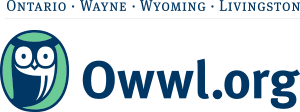Two women. One allegiance. Together they fought for women everywhere, and their strong willpower and sheer determination still ripples through contemporary society.
Recount the trials, tribulations and triumphs of Elizabeth Cady Stanton and Susan B. Anthony as they strive to give birth to the women’s movement. Not until their deaths was their shared vision of women’s suffrage realized.
Watch Video Clips | Read the Biography
Explore the PBS LearningMedia Collection of Not for Ourselves Alone
Women’s Suffrage: Suffragettes fought for voting rights for American women, but some people struggled with the social changes that this brought.
Winter Wheat: Suffragettes fought tirelessly for a woman’s right to vote, but it was a difficult endeavor. Susan B Anthony and Elizabeth Cady Stanton did not live to see the laws change, but their efforts made ripples throughout history.
A Great Partnership: Susan B. Anthony and Elizabeth Cady Stanton may have been very different people, but together they formed a great – and complementary – partnership.
Seneca Falls Convention: When Susan B. Anthony introduced the Declaration of Sentiments at the first convention on women’s rights, she prompted a passionate response from the audience.










